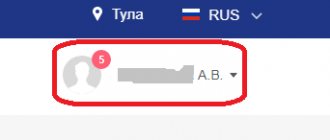Federal Law No. 201-FZ of July 11, 2011 “On Amendments to the Federal Law “On the Privatization of State and Municipal Property”” (hereinafter referred to as the Privatization Law) introduced a new method of privatization - the transformation of a unitary enterprise into a limited liability company (LLC) . The amendments introduced by Law No. 201 Federal Law come into force on July 26, 2011.
What methods of privatization exist currently? The list of current methods of privatization of state and municipal property is established in Article 13 of the Law on Privatization:
- transformation of a unitary enterprise into an open joint-stock company;
- transformation of a unitary enterprise into a limited liability company;
- sale of state or municipal property at auction;
- sale of shares of open joint-stock companies at a specialized auction;
- sale of state or municipal property at a competition;
- sale outside the territory of the Russian Federation of state-owned shares of open joint-stock companies;
- sale of shares of open joint-stock companies through a trade organizer on the securities market;
- sale of state or municipal property through a public offering;
- sale of state or municipal property without announcing the price;
- contribution of state or municipal property as a contribution to the authorized capital of open joint-stock companies;
- sale of shares of open joint-stock companies based on the results of trust management.
Privatization of state and municipal property is a paid alienation of property owned by the Russian Federation, constituent entities of the Russian Federation, municipalities, into the ownership of individuals and (or) legal entities.
As you can see, the list of privatization methods is quite numerous, but the main groups of methods can be distinguished. This:
- transformation into an OJSC or LLC,
- sale of property at auction or competition,
- sale of shares at auction or on the securities market,
- contribution of state or municipal property as a contribution to the authorized capital of open joint-stock companies.
The procedure and conditions for carrying out various methods of privatization are given in Chapter IV of the Privatization Law.
Why were such amendments needed?
The amendments are aimed at improving the mechanism for the sale of state and municipal property in electronic form, and the involvement of legal entities - professional sellers - will make it possible to spread the practice of using electronic privatization auctions throughout the Russian Federation, taking into account existing experience at the federal level.
In addition, the need to attract professional sellers is due, among other things, to their capabilities in the field of extensive marketing, collecting the necessary information about the object of sale, qualified consultation of bidders, negotiations and effective interaction with potential buyers.
Contest
State or municipal property can be privatized through sale at a competition if the buyer needs to fulfill certain conditions in relation to the specified property.
Such conditions may be: maintaining the number of jobs; preservation of the main purpose of the privatized object, the historical appearance of the buildings, and the profile of the enterprise; maintenance and financing of social facilities; established investment amounts. The competition is open in terms of participants. Proposals for the price of state or municipal property are submitted by competition participants in sealed envelopes. A competition in which only one participant took part is considered invalid.
The right to acquire state or municipal property belongs to the buyer who offered the highest price for the specified property during the competition, provided that such buyer fulfills the conditions of the competition.
Auction
If the privatization of state or municipal property does not establish that the buyer has fulfilled any conditions in relation to the privatized property, then it can be sold without
and
the auction
. The auction is open in terms of participants. Submission of proposals on the price of state or municipal property can be carried out in open or closed form. In a closed form, price proposals are submitted by auction participants in sealed envelopes. In an open form, offers on the price of privatized property are declared openly by buyers during the bidding process. If an open form for submitting proposals on the price of state or municipal property is used, then in the information message, in addition to the information specified in Article 15 of the Privatization Law, the amount of increase in the starting price (“auction step”) is indicated. An auction in which only one participant took part is considered invalid. Applications for participation in the auction must be accepted for at least 25 days.
Participation in the auction requires the applicant to make a deposit in the amount of 10 percent of the initial price specified in the information message about the sale of state or municipal property. The deposit amounts are returned to auction participants within five days from the date of summing up the auction results. The deposit will not be returned to the auction winner.
The right to acquire privatized property belongs to the buyer who offers the highest price for this property during the auction. The purchase and sale agreement is concluded with the auction winner within five days from the date of summing up the auction results.
Privatization through court
The refusal of the authorized body to privatize land must be justified.
If the reasons for the refusal can be eliminated (provide missing documents, correct errors and inaccuracies), then the applicant has the right to apply again after they have been eliminated. But if this is impossible to do, and the citizen believes that the reasons for the refusal are unlawful, then he has the right to appeal such a decision in court. The statement of claim must clearly reflect the circumstances of the case, the reasons for the refusal of the government agency, and references to the provisions of the laws that, in the opinion of the plaintiff, were violated. The application must be drawn up competently, taking into account the legal subtleties of the privatization process and procedural procedures in general.
Considering the responsibility and complexity of such cases, when appealing decisions to refuse privatization, it is best to use the services of a lawyer. A court decision made in favor of the plaintiff will serve as the basis for the authorized body to issue permission to privatize the land.
Cases challenging a decision of a state body are heard by courts of general jurisdiction or arbitration courts. Jurisdiction of the case will depend on the legal status of the applicant (individual or legal entity).
List of required documentation and algorithm for drawing up an application
The list of documents required for the procedure is determined by Order of the Ministry of Economic Development No. 475 of 2011. In particular, an individual or legal entity will need to provide the following:
- Copies of documentation that identifies the applicant for privatization. If the applicant is an individual, then it will be sufficient to provide a passport of a citizen of the Russian Federation.
DocumentationIf an enterprise or organization applies for the procedure, it will need to provide a certificate of state registration, constituent documentation and charter. If the application is submitted by a proxy, then he must have a power of attorney to represent interests (notarized).
- If a plot with erected buildings or structures is being privatized, an extract from the Unified State Register of Real Estate is required, confirming the existence of rights to real estate. In some cases, such extracts are not issued - this may be due to the fact that the state registration mark itself is missing.
In such situations, the applicant is issued a certificate stating that there are no objects located on the territory of the privatized site.
It is worth noting that most applications for the privatization of a plot with buildings are carried out as a result of a donation or purchase and sale of an object located on land owned by the state or a separate municipality.
- If possible, the applicant also provides an extract from the unified state. register on the existence of registered rights to the site. For example, this option becomes possible when concluding an agreement for the right to perpetual use of a plot of land or signing a lease agreement that contains in its text a clause on the possibility of further acquiring the right of ownership through privatization.
- Cadastral passport (sometimes it will be enough to provide an extract for it). Such a document can be used directly when the plot is being re-registered and already during the period of receiving documents confirming ownership.
Sample cadastral passport of a land plotThe cadastral passport contains a list of information that gives an idea of the boundaries and size of the plot. If there is no such information about the site, then the applicant must initiate a land surveying procedure, during which its boundaries and dimensions are determined.
Before surveying, it will be necessary to agree on the location of the boundaries of the site with the owners of adjacent territories or plots, since their official consent will be required.
The survey procedure is paid for by the applicant independently and to carry it out, you can contact either the cadastral register or a third-party organization (which has the appropriate license). In addition, based on the cadastral value of the plot (as reflected in its passport), the amount of land tax that must be paid annually by the owners will be calculated in the future.
Land surveying procedure - Cadastral extracts for individual objects located on the privatized site (if they are available). Such a document will contain data on cadastral numbers assigned to buildings, location addresses assigned to them, etc.
- Application for privatization, drawn up in accordance with legal requirements.
It is worth noting that when submitting documents, depending on various factors, the list of documentation may be somewhat expanded.
When filling out an application, you must adhere to the general rules for its preparation and reflect mandatory information, which includes:
- name of the body to which the application for privatization of the site is submitted;
- Full name of the applicant, his address (in accordance with registration data), individual tax number, series and number of passport;
- purpose of application after privatization;
- the address of the site, which will allow you to determine its exact location;
- category of land to which the privatized plot belongs;
- information about whether there are restrictions and encumbrances imposed on the site;
- the basis (its type) for the emergence of the right to use the site;
- data regarding the real estate objects available on the site (their number and type);
- documents on ownership of constructed objects (if any);
- data contained in the act of alienation of a plot from state ownership;
- documents on the basis of which the right to privatization arose;
- list of documentation that is attached to the application.
SNT
At the moment, the privatization of lands that are part of horticultural and other dacha non-profit associations seems possible.
In order to carry out such a procedure, in addition to the documentation that is generally required, it will also be necessary to provide confirmation from the Partnership Management that there is no debt on all current payments, as well as a document confirming the boundaries of the allotment, which is signed by members of the SNT Board.
Thus, privatization of a land plot actually means the transfer of the plot to private ownership and the receipt of the corresponding state-issued document.
If there are grounds for privatization, it is necessary to collect a package of mandatory documentation and, together with a pre-executed application, contact the local government authorities in whose ownership the specific plot is located.
Features of a one-time procedure
Simultaneous privatization of these objects is impossible.
For those who are interested in whether it is possible to obtain ownership of a land plot if private real estate is not privatized, we will answer that if a person intends to privatize a plot of land, he must first register the house in his name, for example, remove the status of an official one from it. After this, you can perform actions with the site. Help: if the plot has already been privatized, then ownership of the house does not need to be registered.
The difference between state and municipal property
State property differs significantly from municipal property both in subject and object composition, as well as in the grounds for its acquisition.
If the property is owned by federal authorities, then they are its managers, for example, the Ministry of Defense in relation to the housing stock under its jurisdiction. And if the property belongs to the municipality, then, accordingly, it is responsible for the future fate of the entrusted property, for example, it enters into social rent agreements with individuals on its own behalf or gives permission for privatization.
Example. A citizen has at his disposal several hectares of land on which he decided to grow agricultural products, and at the same time engage in hunting and fishing. How can I do that?
Suppose the territory is under the jurisdiction of a municipality. In this case, you can initiate privatization on the basis of a title document, for example, a lease agreement for a plot, or leave everything as is and implement your plans on the leased plot. Moreover, according to the current legislation, it is impossible to register ownership of a river, forest or environmental area.










